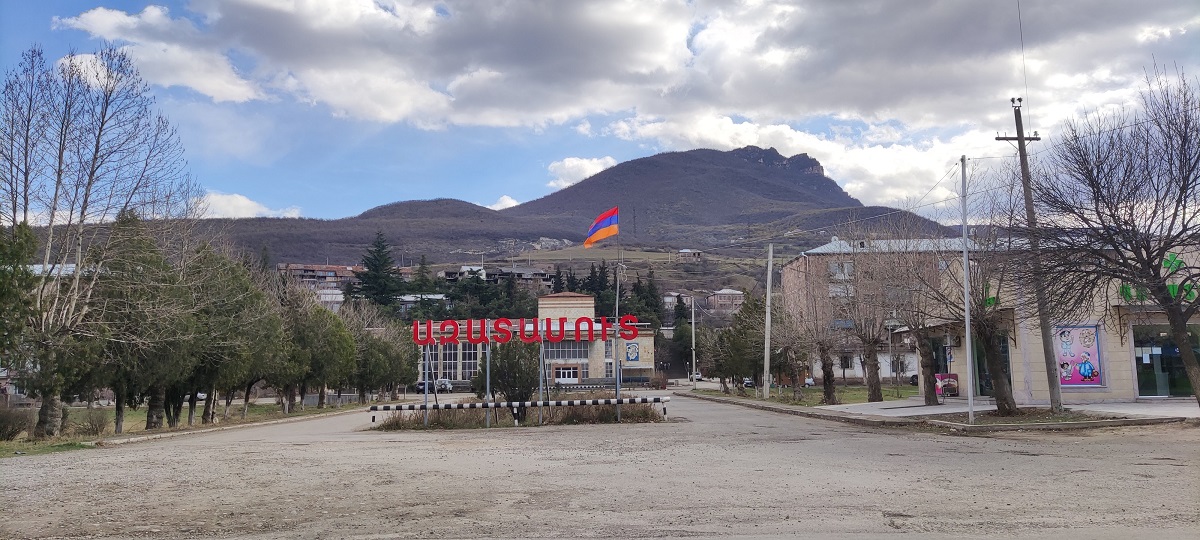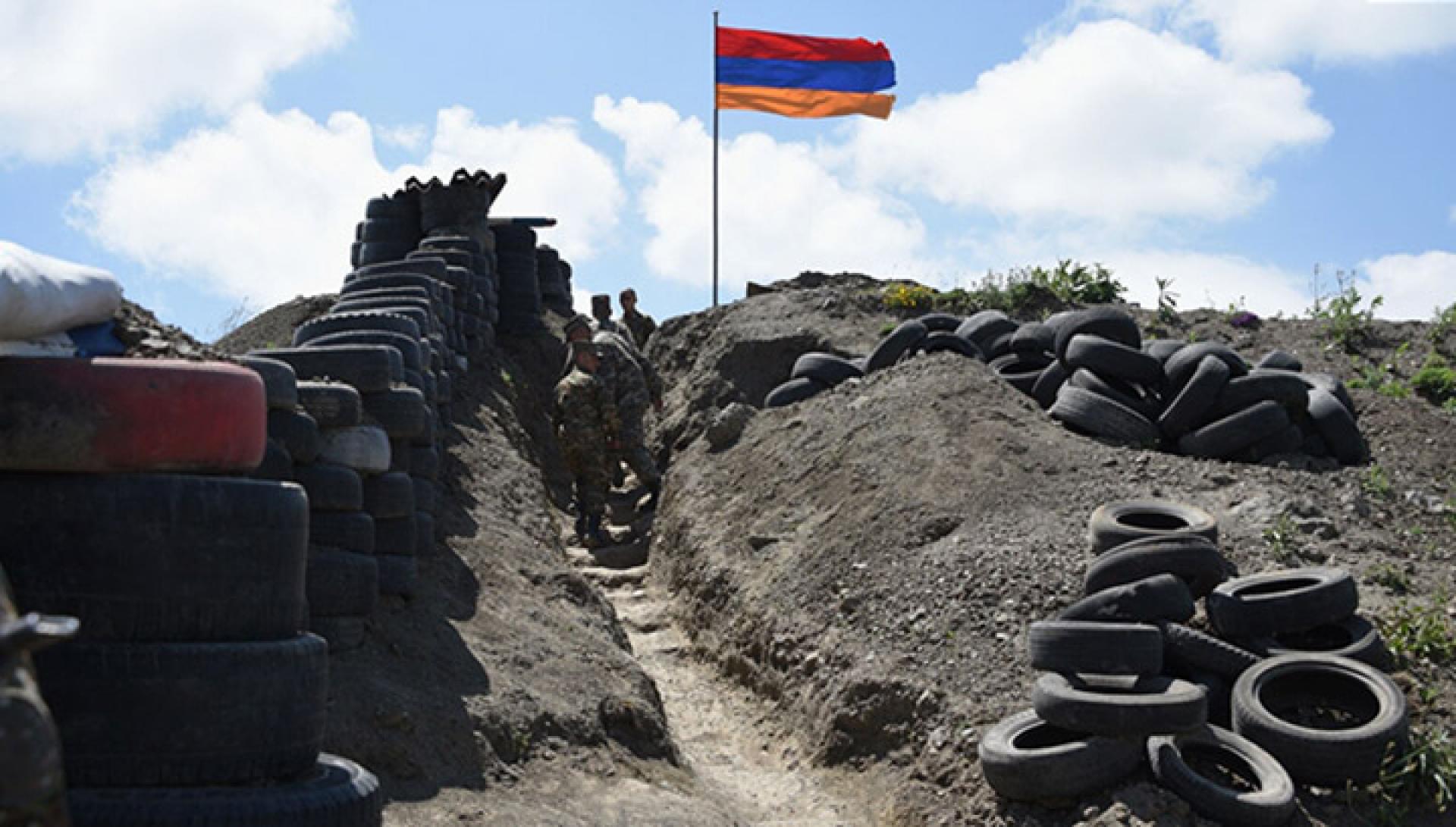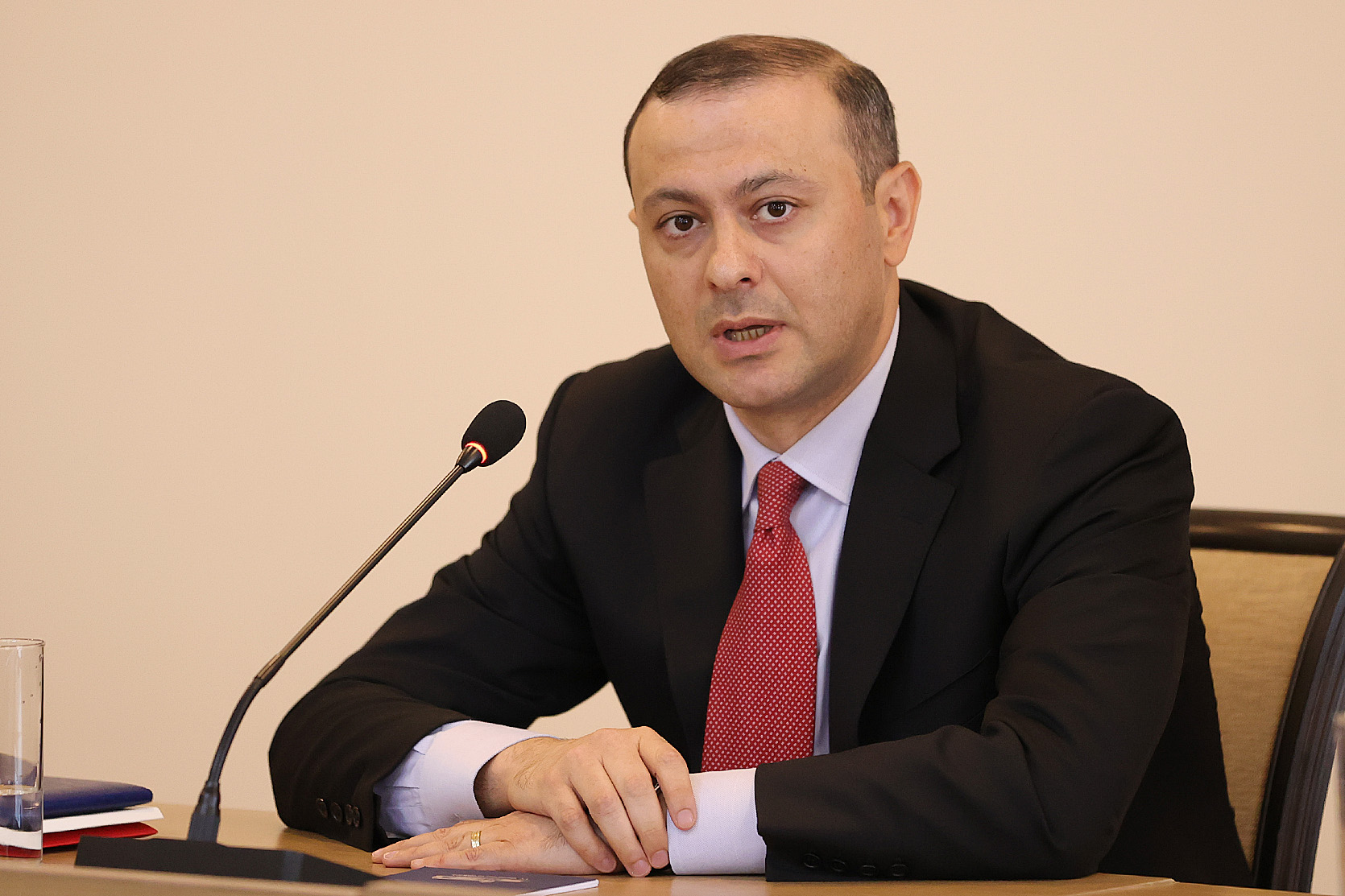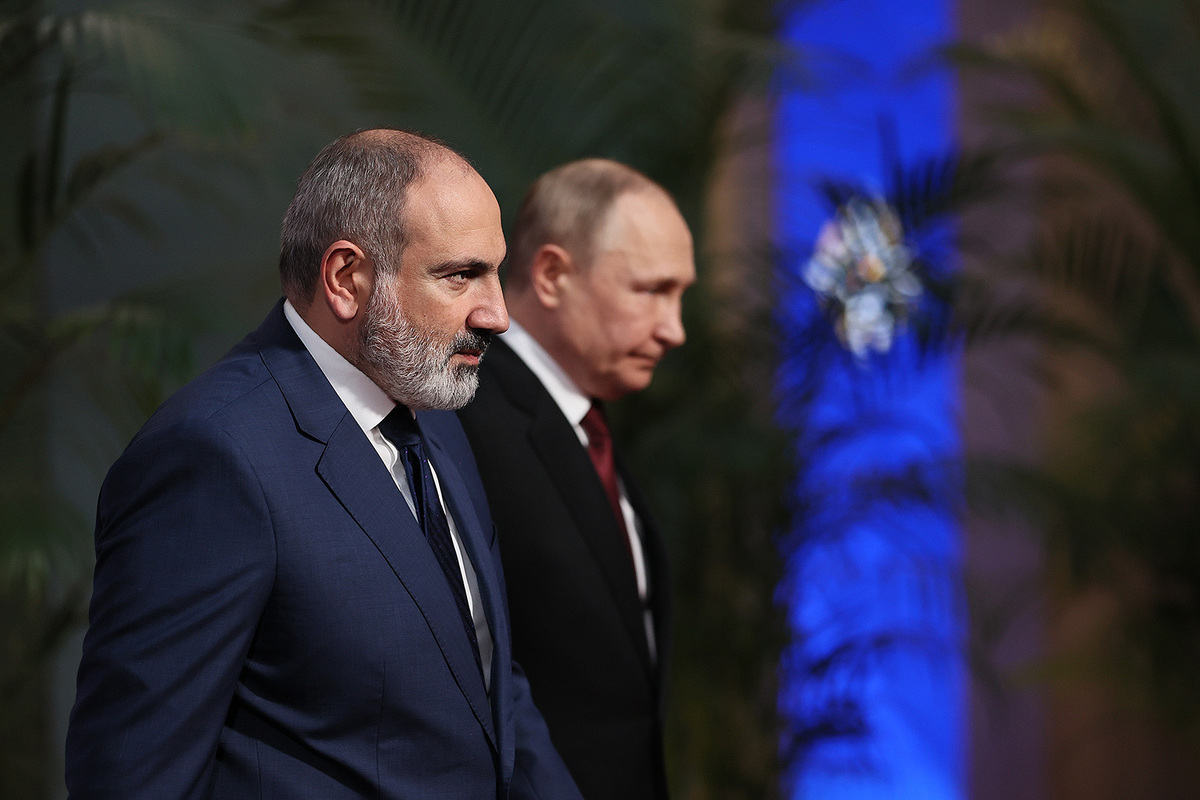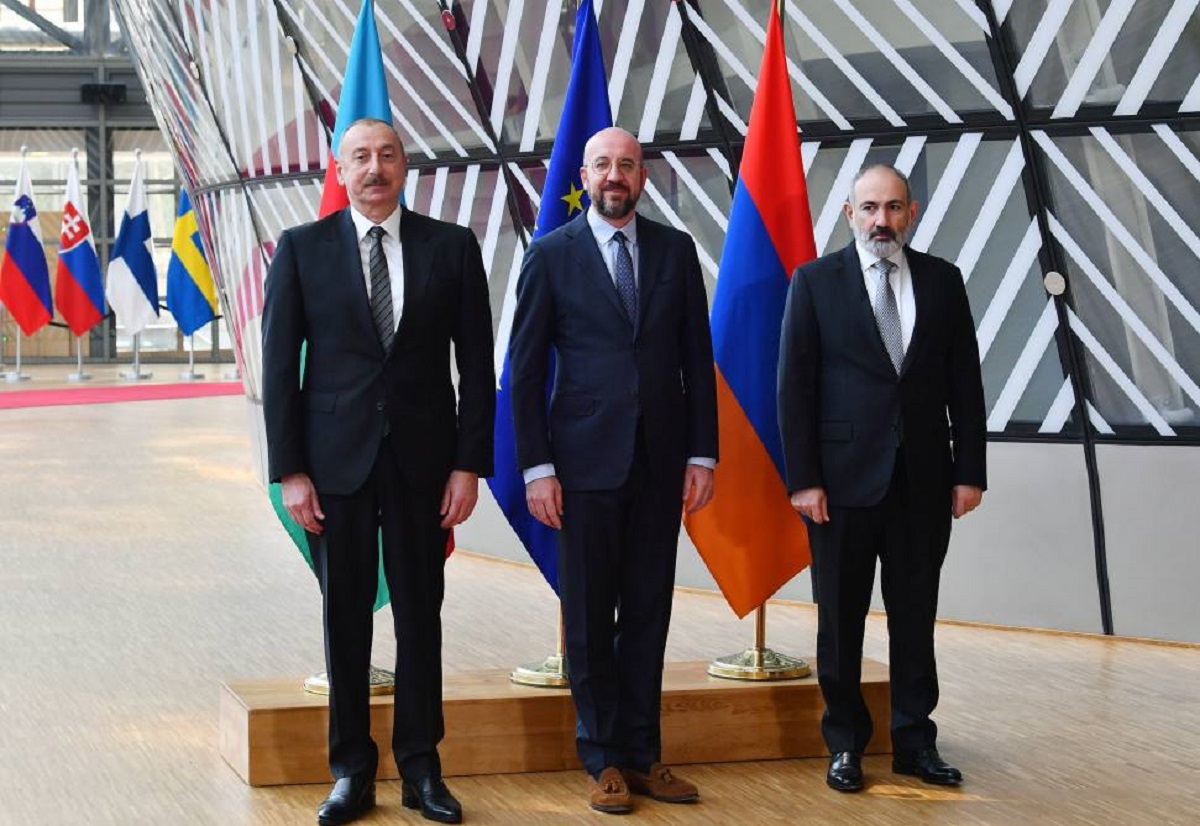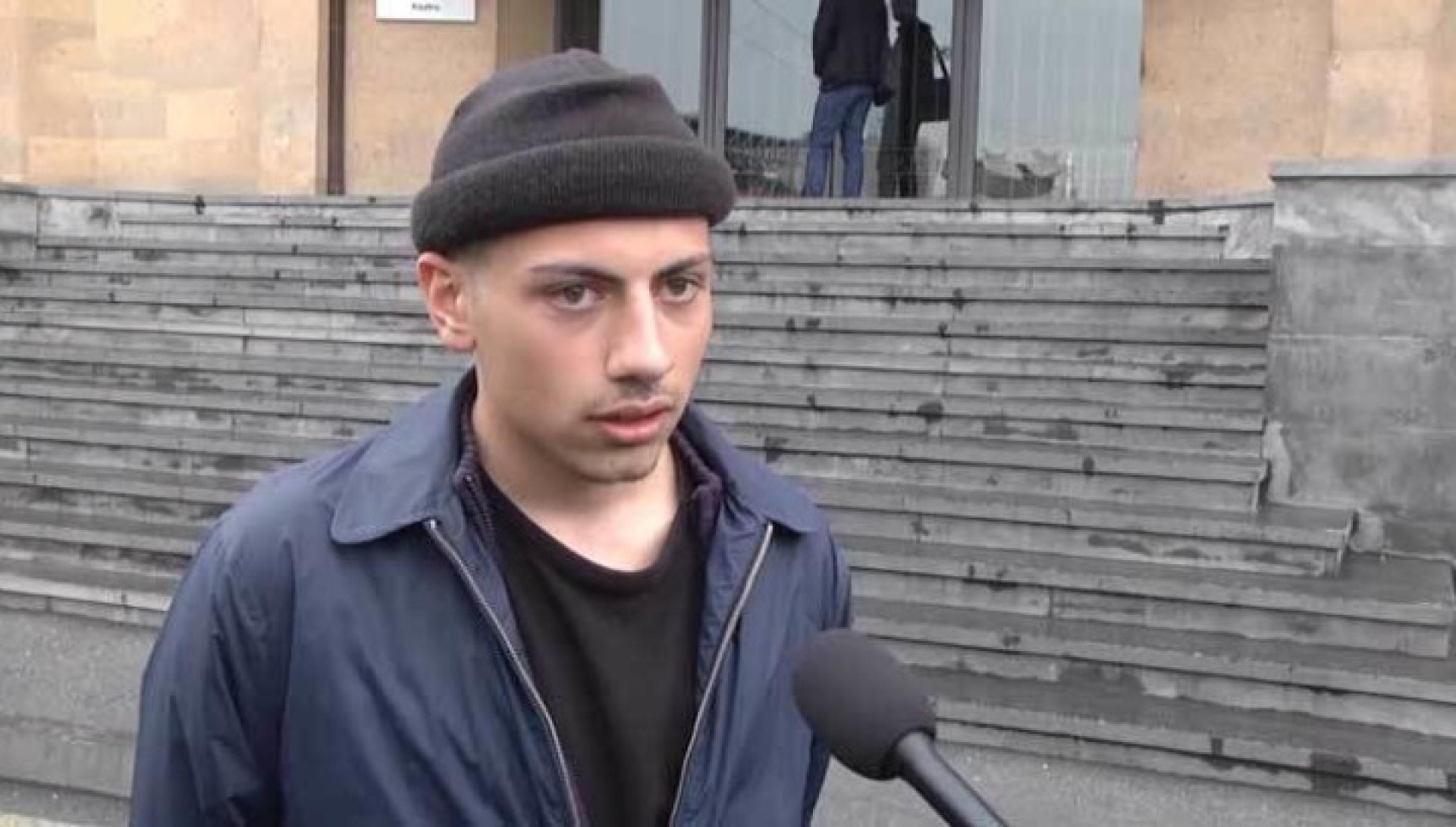“The territorial integrity of Azerbaijan includes Nagorno-Karabakh,” and other statements by Pashinyan
Karabakh-Azerbaijan-Pashinyan
“The territorial integrity of Azerbaijan in 86,600 sq. km includes Nagorno-Karabakh,” the Prime Minister of Armenia said during a press conference, noting that this issue is inseparable from the rights and security of the Armenians of Nagorno-Karabakh, which should be discussed in direct dialogue with Baku, but for these negotiations it is necessary to create international guarantees.
During his press conference, which lasted almost five hours, the prime minister also talked about the normalization of relations with Azerbaijan, the possibility of the country’s withdrawal from the CSTO military bloc, a “balanced foreign policy” between Russia and the West, and an attempt to kidnap his son.
“I do not agree with the wording that we are leaving Artsakh”
So the Prime Minister answered the question of one of the journalists. According to him, all the leaders of Armenia also recognized the territorial integrity of Azerbaijan, and he reiterated the need for
- steps to prevent Azerbaijan from continuing the policy of ethnic cleansing and genocide in Nagorno-Karabakh,
- creation of international guarantees for the dialogue of NK Armenians with Baku.
“The enclaves are not part of the recognized territory of Armenia”
The prime minister said that the 29,800 sq. km of the internationally recognized territory of Armenia includes the Armenian village of Artsvashen, which came under the control of Azerbaijan during the war in the early 90s. The territory of Azerbaijan, according to Pashinyan, includes seven enclaves. In response to a clarifying question, he confirmed that “Tigranashen and six other villages of the Tavush region” are also Armenia:
“This is from a political point of view, but the legal component of the issue will still need to be discussed.”
On the Peace Treaty and “Washington Progress”
Pashinyan confirmed that Armenia is committed to “the speedy completion of negotiations and the signing of a peace agreement.” His team is intensively working in this direction.
He said that before the meeting of the foreign ministers in Washington, the last desiderata and objections of the Armenian side were conveyed to Azerbaijan, and now a response is expected from Baku:
“We hope that in the answer we will see the results of the discussions that took place in Washington, the agreements, the progress in mutual understanding that was recorded.”
Pashinyan did not rule out that a peace treaty would be signed in the near future if the Azerbaijani response proposals and approaches were in an “acceptable compromise logic.”
According to Pashinyan, in Washington the ministers negotiated directly, expressed their concerns more directly, and talked about the reasons and grounds for distrust of the other side. Accordingly, new nuances emerged:
“Offers during negotiations often contain a lot of hidden meanings, and sometimes they are not so easy to guess. At some point these hidden meanings became clearer, and the conversations became more understandable.”
About the mirror withdrawal of troops and maps
Pashinyan said that the delimitation of the Armenian-Azerbaijani border according to the maps of the USSR of 1975 is being discussed with the mediators. And in the current situation, the withdrawal of troops from the border line on these maps will mean “ensuring stability.”
According to the prime minister, this will not predetermine the process of delimitation, but Soviet maps can become the basis for this.
“This follows from the agreements reached in Prague on October 6, 2022 on demarcation based on the Alma-Ata Declaration.”
Answering a question about Azerbaijan’s position on the withdrawal of its troops from the territory of Armenia, Pashinyan said that he did not see a positive reaction. He maintained that the mirror withdrawal of troops in no way contradicts the state interests of Armenia.
“I do not rule out that Armenia will decide to withdraw from the CSTO”
Journalists asked about the possibility of Armenia’s withdrawal from the CSTO military alliance, which operates under the leadership of Russia. Pashinyan repeated his phrase: “This is the CSTO leaving Armenia.”
He stressed that if Armenia asserts that the structure has left the country, the country can de jure decide to suspend or freeze its membership in the CSTO:
“If this fact is recorded, then the de jure status of a CSTO member, which gives nothing, will only prevent us from discussing our security agenda with other countries. Do you think that Armenia did not have the opportunity to acquire weapons or military equipment from other countries? Of course there was such an opportunity, but this topic was closed, and this was explained by the fact that Armenia is a member of the CSTO. They said, they say, you are a member of the CSTO, what should we discuss with you.”
“Dissonance on the issue of CSTO observers”
Pashinyan explained why Armenia agreed to the deployment of EU observers on its border, but refused CSTO observers, being a member of this military bloc.
He recalled that, unlike the EU, Armenia has an agreement with the CSTO, which fixes the obligations of the parties in the field of security. The country is weighing the bloc’s position against these commitments, he said:
“When we see dissonance here, we say: “Dear colleagues, let’s first resolve this issue, and then start monitoring the border.” Without eliminating this dissonance, the monitoring mission cannot be effective. The CSTO mission does not operate on the territory of Armenia for the simple reason that, in fact, the organization does not indicate its vision of the territory and borders of Armenia. Ninety percent of the problems stem from this.”
“There is no question of expulsion of the Russian Federation”
The Prime Minister of Armenia also responded to the latest statement by Russian Foreign Minister Sergei Lavrov that “the United States and its allies say, join us, drive the Russians out of your territory.” Pashinyan asserted that Armenia is under no instigation from the West to break off relations with Russia, and that issues related to security are now being discussed with Western partners, which was not the case before:
“We believed that there is a security architecture in the region, which, at least de jure, should be reliable and invulnerable. But this security system [the agreements with Russia, including within the framework of the CSTO] does not work in the form in which it is formulated in legally binding documents. Therefore, the security agenda began to be discussed with Western and not only Western partners.”
“What does the West have to do with it?”
According to Pashinyan, issues of developing bilateral relations with Russia are discussed transparently, all concerns of Armenia are openly expressed to Russian partners.
The prime minister recalled the inaction of Russian peacekeepers in Nagorno-Karabakh in their zone of responsibility during the Khtsaberd and Parukh events, the murder of a tractor driver in their presence, and “the establishment of an illegal checkpoint in the Lachin corridor”:
“What does the West have to do with it? The most important factor is our relationship, the mutual obligations that we have towards each other. I do not think that the West grabbed someone by the hand and did not allow them to fulfill these obligations in various areas of activity related to security, military-technical equipment and peacekeeping forces.”
“There are no lost Azerbaijanis in Armenia”
Commenting on the statement of the head of the European Council Charles Michel on the accelerated procedure for the return of lost Armenian and Azerbaijani soldiers, Pashinyan agreed that they must be returned. But he also noted that the Azerbaijanis in Armenia crossed the border themselves, they did not get lost.
When asked if Yerevan is ready to return or exchange them, given that one of the Azerbaijanis is accused of killing an Armenian citizen, Pashinyan replied:
“Settlement of relations is an important and difficult decision. After completion of legal procedures, we are ready for discussion. After the decision of the court, there may be different decisions.”
“If the shrapnel didn’t kill Ashot, is he an antihero?”
The Prime Minister was asked several times about the attempted kidnapping of his son Ashot Pashinyan and the detention in connection with this Gayane Hakobyan, the mother of a soldier who died in 2020 during the war in Karabakh. He replied that the question had three dimensions: legal, moral and political. He refused to comment on the legal aspect.
Talking about the political aspect, he stressed that the legal system must operate regardless of individuals, all citizens are equal before the law. Pashinyan stated that he did not agree with the “formation of a new class of people who are not equal before the law.”
He spoke for a long time on the moral side of the issue and recalled that his son Ashot Pashinyan volunteered for the front line; moreover, it ws after the end of his military service, when he had no obligation to be drafted into the army again. T
“Nobody made a decision that Ashot Pashinyan cannot die. No one could have predicted that this fragment would not kill my son, it is simply out of the question. If this fragment had killed Ashot Pashinyan, would he have become a hero? [In Armenia, it is customary to call the dead soldiers heroes]. And if the fragment did not kill him and passed by in millimeters, then he became an anti-hero?”
The prime minister continued the topic and raised the issue of the wording “mother of a hero”, as it is now customary to call the mothers of dead soldiers. He asked the question: “If Ashot did not die, then his mother is not the mother of the hero?” He also recalled that his wife at the same time “was at the forefront with weapons in her hands.” Thus he regarded the attempted kidnapping of his son, the threat to his life, as steps that could “complete the work that the fragment of the Azerbaijani shell failed to do.”
Journalists asked if he was going to advise his son to withdraw the complaint from the police. Nikol Pashinyan rejected this possibility, stressing that “issues in Armenia should be resolved only within the framework of the law.”
Follow us – Twitter | Facebook | Instagram
Karabakh-Azerbaijan-Pashinyan










